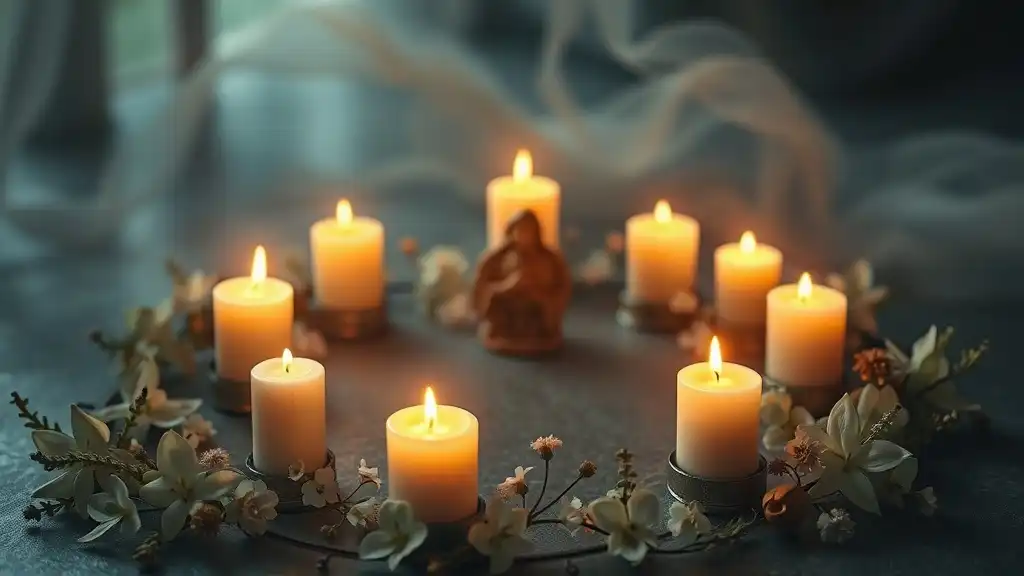Candles have illuminated human consciousness for centuries, serving not only as practical sources of light but also as powerful symbols in various spiritual practices. Their flickering flames and warm glow evoke feelings of tranquility and introspection, making them essential tools for personal transformation and ritualistic expressions. This article explores the spiritual meaning of candles, their historical significance, the symbolism behind different colors, as well as practical applications in rituals and meditation.
The Essence of Candlelight
Understanding the Symbolism of Light
Throughout history, light has held deep spiritual significance across cultures and religions. Candlelight represents purity, hope, and the divine spark within each individual. As it dances in the darkness, it serves as a reminder of the ongoing journey of the soul, guiding paths and illuminating truths that may otherwise remain hidden. The act of lighting a candle can symbolize the transition from ignorance to enlightenment and signifies an invitation for divine presence into one’s life.
The Physical Properties of Candles
Candle-making is an art that intricately combines physical properties like wax, wick, and flame. The wax, traditionally derived from beeswax or paraffin, represents the earthly element, while the wick serves as a channel that draws the wax upward, symbolizing the connection between the material and spiritual realms. Finally, the flame not only signifies transformation but also acts as a bridge between the physical and the ethereal, manifesting intentions into reality.

Historical Significance of Candles in Spiritual Practices
Candles in Ancient Cultures
Candles have roots extending back to ancient civilizations, where they were often integral to religious rites and ceremonies. For example, the Egyptians utilized candles in their burial practices, lighting them to guide the souls of the departed through the afterlife. The Romans, too, honored their gods with candles, believing the light to be a form of prayer. Each culture infused their rituals with unique meanings, yet the core significance of light as a spiritual guide remained constant.
Candles in Religious Contexts
Candles are omnipresent across major religions. In Christianity, they illuminate altars and are lit during prayer to symbolize Christ as the "Light of the World." Similarly, in Buddhism, candles represent the enlightenment that overcomes darkness; lighting one serves as a meditation on the impermanence of life. From Diwali to Yule, candles play roles in celebrations, prayers, and reflections, providing a sacred moment for connection to the divine.
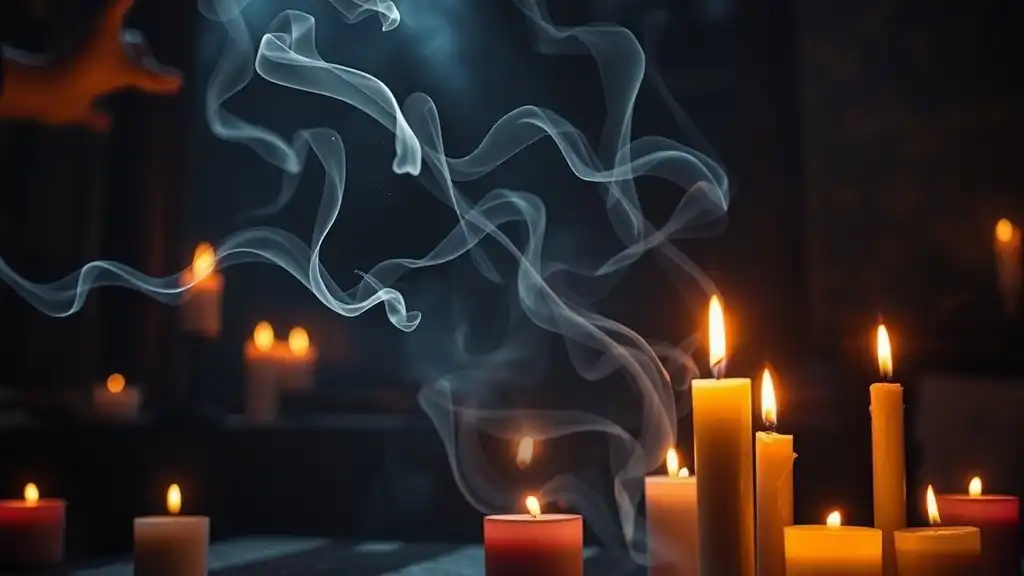
Spiritual Meanings of Candle Colors
The Symbolism Behind Different Candle Colors
Each candle color carries its own unique significance and can profoundly influence a meditation or ritual. Some common colors include:
- White: Symbolizes purity, clarity, and peace. Often used for healing and protection.
- Red: Associated with love, passion, and courage. This color is great for manifesting desires tied to relationships.
- Green: Represents prosperity, growth, and healing. It's frequently used in abundance rituals and health-related intentions.
Understanding these meanings allows individuals to select candles that resonate with their specific needs and intentions.
Using Colored Candles in Rituals
When working with colored candles, it's essential to choose the right color to align with your intentions. For instance, if you're seeking clarity in a situation, lighting a white candle can enhance your focus and bring tranquility to your mind. Additionally, you can incorporate colored candles in rituals by stacking them according to the intention being set, thus creating a vibrant spectrum that amplifies the energetic focus of your practice.
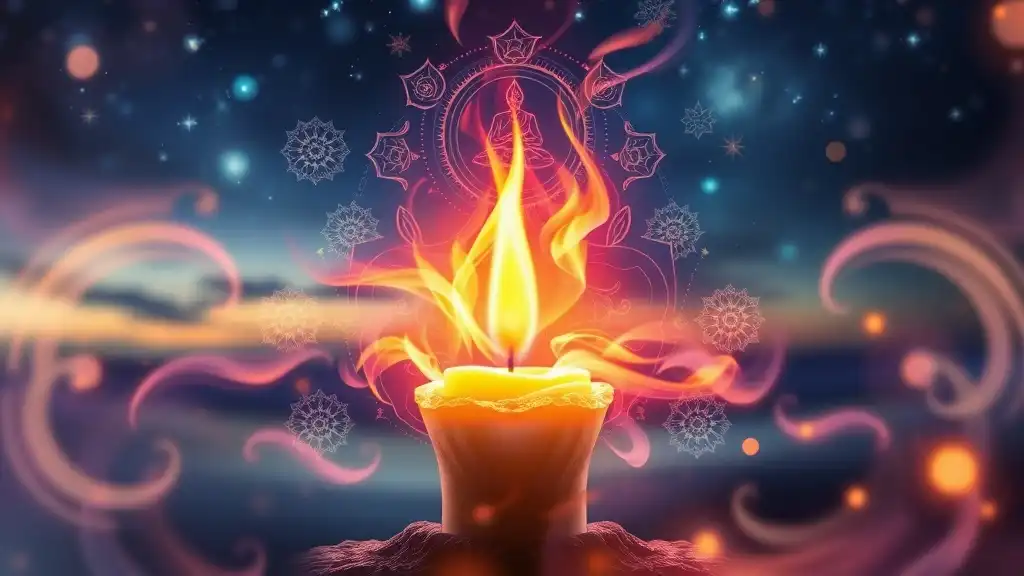
Candle Rituals and Practices
Setting Intentions with Candles
The practice of setting intentions is a powerful manifestation tool. To create an intention candle ritual, begin by selecting a candle that aligns with your desired outcome. Write your intention on a small piece of paper, fold it, and place it under the candle while lighting it. As the flame flickers, visualize your intention manifesting into reality, allowing the candlelight to absorb your energy and desires. Each time you revisit this candle, you reignite not only the flame but also your commitment to your personal journey.
Meditation with Candlelight
Incorporating candlelight into meditation practices can create a profound sense of presence. To use a candle as a focal point, find a quiet space, light your candle, and sit comfortably. Fix your gaze gently upon the flame, allowing your thoughts to settle as you take deep breaths. The candle’s flicker can draw you into a state of tranquility, enhancing your connection to the present moment. This practice encourages clarity and mindfulness, deepening your spiritual experience.
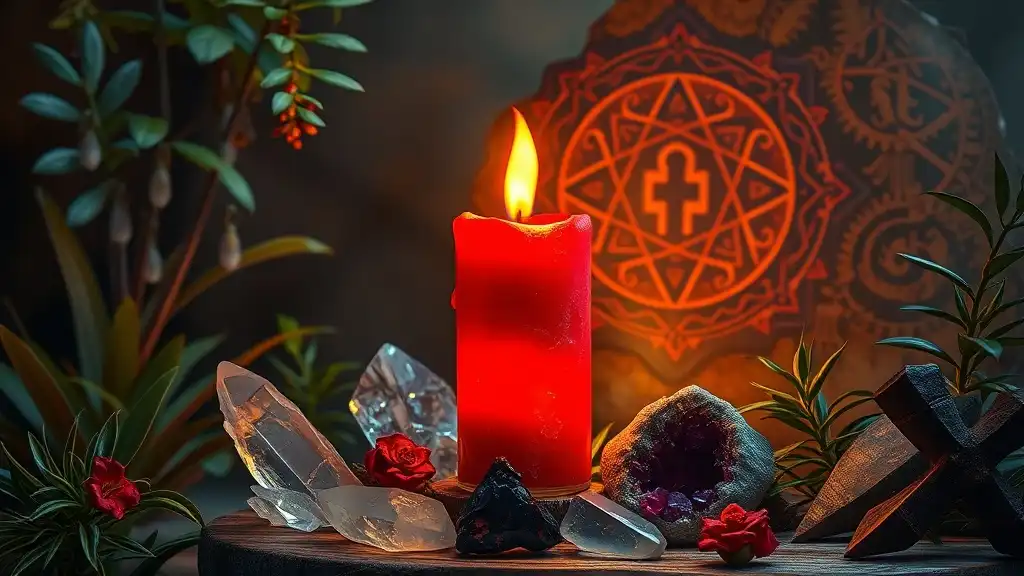
The Power of Aromatherapy and Candles
The Role of Scent in Spiritual Experiences
Scents can evoke powerful memories and emotions, making them integral to enhancing spiritual practice. Essential oils infused in candles can transport you to a place of serenity, grounding, or invigoration depending on what you need. For instance, lavender is often used for relaxation, while citrus scents can uplift your mood and energize your spirit.
Creating a Multi-Sensory Candle Ritual
To elevate your ritual, consider creating a multi-sensory experience that engages sight, smell, and intention. Choose a scented candle that resonates with your purpose, dim the lights, and surround yourself with calming elements such as soothing music or soft fabrics. As you engage with each sense, allow the atmosphere to carry you deeper into the experience, facilitating a stronger spiritual connection.

Safety and Care for Candles
Best Practices for Candle Use
While candles are magical tools for spiritual exploration, safety must come first. Always burn candles in a non-flammable holder and keep them away from flammable materials. Ensure the area is well-ventilated and never leave a burning candle unattended. These precautions will keep your spiritual practices safe and enjoyable.
Eco-Friendly Candle Options
For those concerned about environmental impact, opt for eco-friendly candles made from natural waxes like soy or beeswax. These alternatives burn cleaner, releasing fewer toxins into the air, and often come with sustainable packaging. Choosing eco-friendly options aligns your spiritual practice with an ethical commitment to the earth.

Conclusion
The spiritual meanings of candles are rich and varied, serving not only as physical objects but as profound symbols of enlightenment, intention, and transformation. Incorporating candles into your spiritual practice can elevate your journey, whether through rituals, meditation, or self-reflection. Embrace the candlelight as a guide, celebrating the light within and around you as you navigate your unique path to spiritual fulfillment.
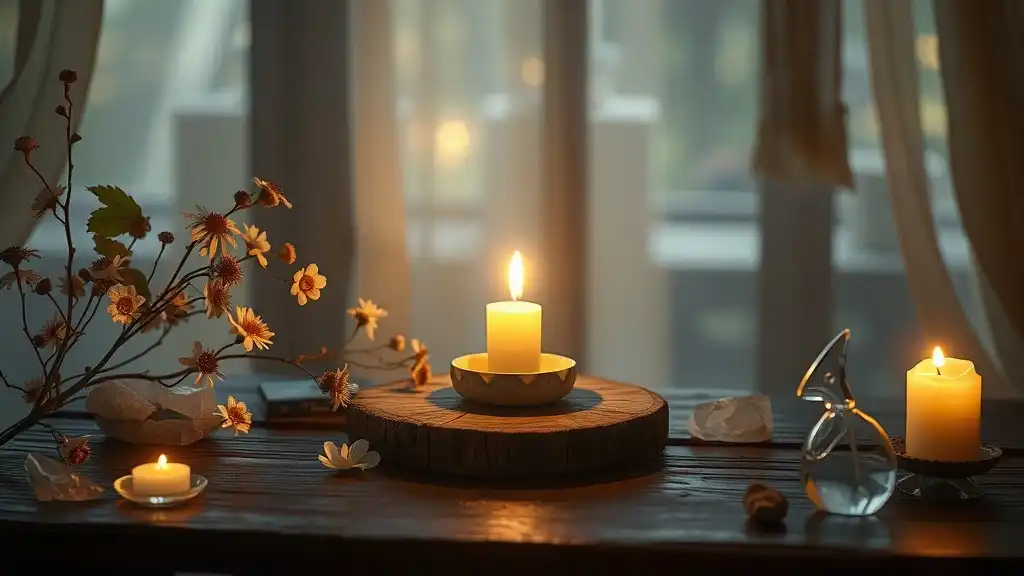
Additional Resources
For further exploration of candle spirituality, consider delving into resources such as books, community forums, and workshops focused on candle rituals and their meanings. This can deepen your understanding and enhance your practice, allowing you to cultivate a life illuminated by intention and purpose.













